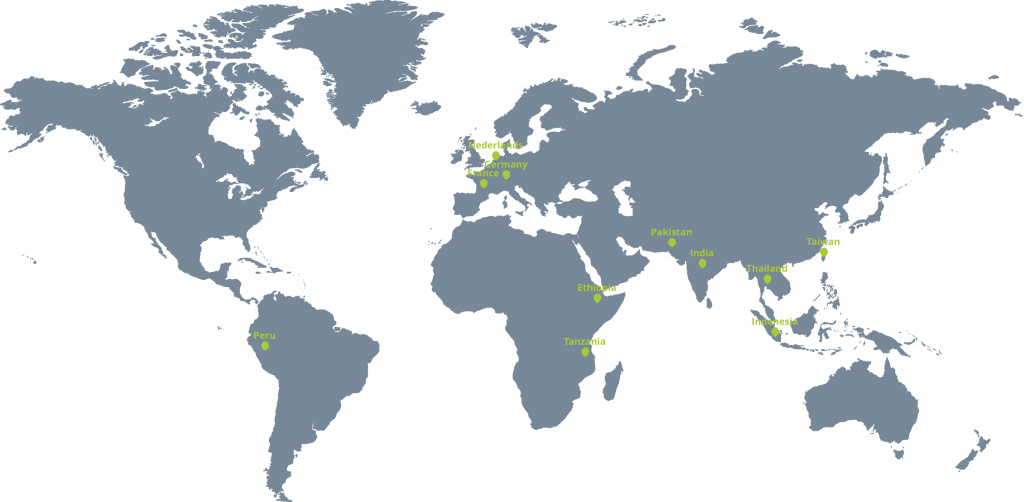In-kind contribution to disaster seed kits
Seed companies have collaborated with the Center to prepare and distribute seed kits after disasters. For example, 8 companies provided seed to survivors of the December 2004 tsunami in Indonesia and Sri Lanka. In 2014, East-West Seed Indonesia provided 10,000 seed kits to people affected by volcanic eruptions in East Java and North.
Technical input
The Asia & Pacific Seed Association (APSA) closely collaborates with the World Vegetable Centre. For APSA members, the cooperation provides early and priority access to research and development results, the chance to interact directly with World Vegetable Centre staff at workshops; and preferential rates for germplasm and breeding lines. Some APSA companies, have sent their staff to the Centre for short-term training.
The World Vegetable Centre’s main benefits are the funding provided; the opportunity to better align the Centre’s work with pertinent issues identified by the private sector; and the opportunity to utilize APSA’s network to disseminate the Centre’s international public goods. APSA also helps expand the Centre’s gene bank collection by sharing lines with interesting horticultural characteristics.
25 seed companies participate in an on-going World Vegetable Center-led project to evaluate a set of tomato lines representing different gene combinations for resistance to tomato yellow leaf curl diseases (TYLCD). Participating companies establish field trials in disease hotspots and evaluate TYLCD incidence and severity. Seed companies have also contributed technical support in varietal trials in Africa.
In-kind support
- Syngenta-India and Namdhari Seed Co. India hosted tomato field trials. Combined, the trials included 116 tomato entries from 33 seed companies. They also hosted field days for researchers, farmers, and breeders to review the trials.
- Sasya-India spent 2 seasons multiplying the seed of 4 World Vegetable Center onion varieties and 7 tomato hybrids at the Center’s request.
- VNR Seeds, India provided a success story with a hybrid cultivar derived from a World Vegetable Center inbred line.
- Rijk Zwaan and Enza Zaden have provided contributions for regeneration of priority germplasm. These account for about 3% of the World Vegetable Centre’s annual regenerations.
Contact:
Website:
